
Entertainment
-
 DiscoverEU marks 40 years of Schengen with 40,000 free travel passes for young Europeans
The European Commission is celebrating the 40th anniversary of the Schengen Area by offering 40,000 young Europeans the chance to explore the continent through DiscoverEU, part of the31 October 2025Read More...
DiscoverEU marks 40 years of Schengen with 40,000 free travel passes for young Europeans
The European Commission is celebrating the 40th anniversary of the Schengen Area by offering 40,000 young Europeans the chance to explore the continent through DiscoverEU, part of the31 October 2025Read More... -
 Brussels universities to award honorary doctorates to Stromae, Lize Spit, and Amélie Nothomb
The Vrije Universiteit Brussel (VUB) announced on Monday that Stromae, Lize Spit, Amélie Nothomb, François Schuiten, and Ever Meulen will receive joint honorary doctorates from VUB and27 October 2025Read More...
Brussels universities to award honorary doctorates to Stromae, Lize Spit, and Amélie Nothomb
The Vrije Universiteit Brussel (VUB) announced on Monday that Stromae, Lize Spit, Amélie Nothomb, François Schuiten, and Ever Meulen will receive joint honorary doctorates from VUB and27 October 2025Read More... -
 Stolen Renaissance masterpiece returns to Italy after 52 years
After more than half a century, a stolen Renaissance painting has finally returned home to Italy. *Madonna with Child*, a tempera-on-wood masterpiece by Venetian painter Antonio Solario,31 July 2025Read More...
Stolen Renaissance masterpiece returns to Italy after 52 years
After more than half a century, a stolen Renaissance painting has finally returned home to Italy. *Madonna with Child*, a tempera-on-wood masterpiece by Venetian painter Antonio Solario,31 July 2025Read More... -
 Belgian seaside resorts: highlights of royal De Panne
While Ostend is often dubbed the queen of Belgium’s seaside resorts, the country’s coastline offers many other gems worth discovering. In this series, Belga English explores four distinctive20 July 2025Read More...
Belgian seaside resorts: highlights of royal De Panne
While Ostend is often dubbed the queen of Belgium’s seaside resorts, the country’s coastline offers many other gems worth discovering. In this series, Belga English explores four distinctive20 July 2025Read More... -
 Louis Vuitton named suspect in Dutch money laundering probe
Luxury fashion house Louis Vuitton has been named a suspect in a Dutch money laundering investigation, according to the Dutch Public Prosecution Service (OM). The OM alleges that18 July 2025Read More...
Louis Vuitton named suspect in Dutch money laundering probe
Luxury fashion house Louis Vuitton has been named a suspect in a Dutch money laundering investigation, according to the Dutch Public Prosecution Service (OM). The OM alleges that18 July 2025Read More... -
 Brussels tops global rankings for international meetings as tourism soars to new heights
Brussels has once again secured its position as the world’s top city for international meetings, according to the latest annual report from the Union of International Associations (UIA).26 June 2025Read More...
Brussels tops global rankings for international meetings as tourism soars to new heights
Brussels has once again secured its position as the world’s top city for international meetings, according to the latest annual report from the Union of International Associations (UIA).26 June 2025Read More... -
 Coffee prices keep climbing in Czech establishments
The cost of a cup of coffee in Czech restaurants and cafés has increased by 4% over the past year, now averaging CZK 57.80, according to data from the Dotykačka point-of-sale system.15 June 2025Read More...
Coffee prices keep climbing in Czech establishments
The cost of a cup of coffee in Czech restaurants and cafés has increased by 4% over the past year, now averaging CZK 57.80, according to data from the Dotykačka point-of-sale system.15 June 2025Read More...
News
-
 EU must build over 2 million homes annually by 2035 to avert housing crisis, new data shows
The European Union will need to build more than two million new homes every year until 2035 to keep up with soaring demand, according to new projections released by the EuropeanRead More...
EU must build over 2 million homes annually by 2035 to avert housing crisis, new data shows
The European Union will need to build more than two million new homes every year until 2035 to keep up with soaring demand, according to new projections released by the EuropeanRead More... -
 Police raid homes and offices of French Culture Minister Rachida Dati in corruption probe
French police searched Culture Minister Rachida Dati’s home and offices on Thursday as part of a widening corruption investigation linked to her tenure as a European Parliament lawmaker,Read More...
Police raid homes and offices of French Culture Minister Rachida Dati in corruption probe
French police searched Culture Minister Rachida Dati’s home and offices on Thursday as part of a widening corruption investigation linked to her tenure as a European Parliament lawmaker,Read More... -
 White Christmas unlikely in Switzerland, MeteoSwiss says
The chances of a white Christmas in Switzerland are slim, with snowfall in the lowlands virtually ruled out, according to the Federal Office of Meteorology and Climatology (MeteoSwiss).Read More...
White Christmas unlikely in Switzerland, MeteoSwiss says
The chances of a white Christmas in Switzerland are slim, with snowfall in the lowlands virtually ruled out, according to the Federal Office of Meteorology and Climatology (MeteoSwiss).Read More... -
 Guy Parmelin elected Swiss President for 2026 with record-breaking vote
Economics Minister Guy Parmelin will serve as President of the Swiss Confederation in 2026, securing the office with a result that sets a new benchmark for the current millennium.Read More...
Guy Parmelin elected Swiss President for 2026 with record-breaking vote
Economics Minister Guy Parmelin will serve as President of the Swiss Confederation in 2026, securing the office with a result that sets a new benchmark for the current millennium.Read More... -
 Nigeria seeks French support to tackle insecurity, Macron says
Nigerian President Bola Tinubu has requested increased support from France to combat escalating insecurity in the country’s north, French President Emmanuel Macron said on Sunday,Read More...
Nigeria seeks French support to tackle insecurity, Macron says
Nigerian President Bola Tinubu has requested increased support from France to combat escalating insecurity in the country’s north, French President Emmanuel Macron said on Sunday,Read More... -
 Swiss army has “gone back to sleep,” says departing chief
Switzerland briefly awakened to the urgency of national defence following Russia’s 2022 invasion of Ukraine — but has since drifted back into complacency, outgoingRead More...
Swiss army has “gone back to sleep,” says departing chief
Switzerland briefly awakened to the urgency of national defence following Russia’s 2022 invasion of Ukraine — but has since drifted back into complacency, outgoingRead More... -
 Poland and Germany to seal new defence pact in 2026, leaders announce
Polish Prime Minister Donald Tusk and German Chancellor Friedrich Merz said on Monday that their governments plan to sign a new bilateral defence agreement nextRead More...
Poland and Germany to seal new defence pact in 2026, leaders announce
Polish Prime Minister Donald Tusk and German Chancellor Friedrich Merz said on Monday that their governments plan to sign a new bilateral defence agreement nextRead More... -
 Monegasque Language Committee resumes its work
Following the publication of Sovereign Ordinance No. 11,219 on 7 May 2025, which appointed the members of the Monegasque Language Committee, the group has officially reconvened atRead More...
Monegasque Language Committee resumes its work
Following the publication of Sovereign Ordinance No. 11,219 on 7 May 2025, which appointed the members of the Monegasque Language Committee, the group has officially reconvened atRead More...

Most Read
- Teen held after US woman killed in London stabbings
- Football: Farhad Moshiri adamant Everton deal above board
- Greece hails new post-bailout chapter but concerns remain
- The Kokorev case caused wide discussion in Brussels
- EU accession talks stir debate in Moldova: insights from Gagauzia's leader, Yevgenia Gutsul
Politics
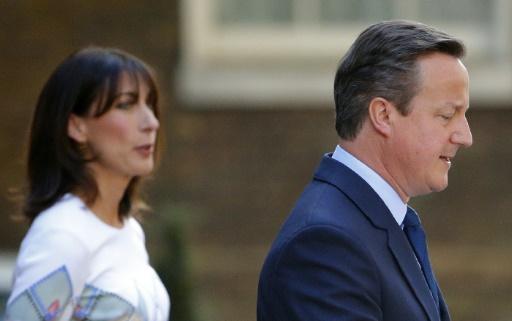
Britain's vote last week to leave the European Union has plunged the country into a triple crisis.
It has unleashed deep and bitter rifts within the main political parties, sent jolts of uncertainty through its economy and raised constitutional questions on the very future of United Kingdom.
Here are the main issues which the country has to grapple with:
- Lame-duck government -
David Cameron announced early Friday that he would resign, soon after the result came through. At that point he said he expected his successor as prime minister and Conservative leader to be in place by early October.
On Monday the Tories' committee in charge of the leadership election said the successor should be in place by September 2, "although an earlier conclusion may be possible," with nominations for the post formally closing on Thursday.
Frontrunners include former London mayor Boris Johnson, who spearheaded the Brexit campaign, and Home Secretary Theresa May.
After all those interested in the job have declared themselves, Conservative MPs will whittle the field down to two candidates.
The next prime minister is then decided by a postal vote of the Conservative party's membership of roughly 150,000 people.
- Warring opposition -
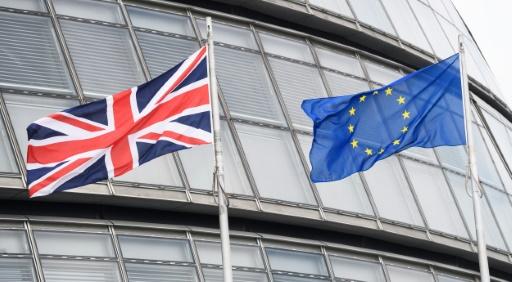
More than two million people have signed a petition calling for a second referendum, after a shock vote to pull Britain out of the EU, an official website showed Saturday.
The website of the parliamentary petition at one point crashed due to the surge of people adding their names to the call for another nationwide poll following Thursday's historic vote.
"We the undersigned call upon HM Government to implement a rule that if the remain or leave vote is less than 60 percent based (on) a turnout less than 75 percent there should be another referendum," says the petition.
The "Leave" camp won the support of 51.9 percent of voters, against 48.1 percent in favour of remaining in the European Union.
Turnout for Thursday's referendum was 72.2 percent.
Signatories to the petition appeared to be mostly in Edinburgh and London, both of which voted heavily in favour of "Remain".
There is no obligation in British legislation for referendums to have a minimum share of the vote or a minimum turnout, as in some other countries.
But EU rules say nothing about a member state that has already begun negotiations to leave the bloc changing its mind and reversing that decision under Article 50 of the Lisbon Treaty.
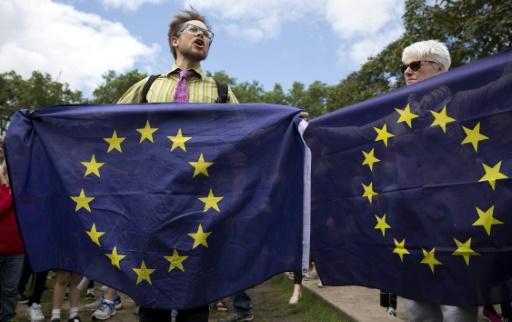
Londoners mobilised on social media Saturday to back a campaign to go from Brexit to 'Lexit', calling for their city to divorce from Britain and "move in with our friends" in the European Union.
While largely a symbolic protest, it is fuelled by real anger following Thursday's dramatic vote to quit the EU, which was acutely felt in the national capital, where a majority voted for Britain to remain in the EU, contrary to the prevailing mood in the country.
More than 130,000 people signed up to a petition to London Mayor Sadiq Khan calling on him to "Declare London independent from the UK and apply to join the EU".
"London is an international city, and we want to remain at the heart of Europe," it says.
"Let's face it -- the rest of the country disagrees.
"Let's make the divorce official and move in with our friends on the continent."
The petition was started by freelance writer James O'Malley, who expected only a few hundred signatures.
"It did start a bit like a joke -- a frustrated joke, a cry of despair," the 29-year-old told AFP.
"I'm a big fan of the EU -- the values, the utopian ideas underpinning the EU. I don't want to see London leave."
Despite the jokey origins, he said the idea was not unthinkable.
"A few years ago we would have said leaving the EU is impossible," he said.
"I'm hoping now, given this gigantic reaction, to turn it into something meaningful. For example, could we use it to campaign for greater devolution for London?"
- Like Singapore? -
The idea of London becoming a city-state like Singapore is circulating online.
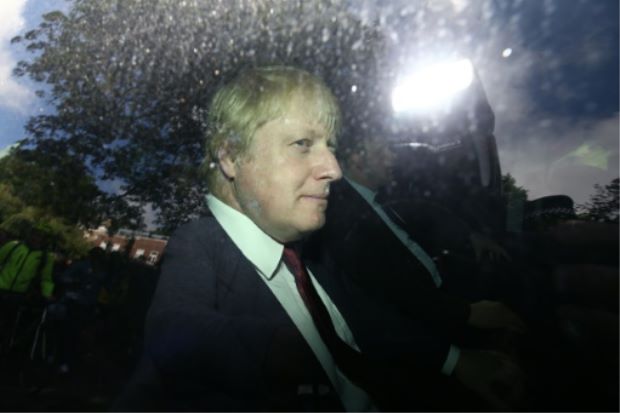
Boris Johnson, who spearheaded the successful campaign for Britain to leave the European Union, said Friday there was no need to rush the process of pulling out of the bloc.
"There is now no need for haste," Johnson told a London press conference in his first public comments since the results were announced.
He said the EU had been "a noble idea for its time" but was "no longer right for this country".
The former London mayor stressed that Britain would not "turn our backs on Europe" and that "our children and grandchildren will continue to have a wonderful future as Europeans."

London bank employee Francesca Crimp broke down in tears Friday as Britain decided to leave the EU, a vote that triggered an earthquake in the financial markets.
"I'm scared, I voted for my son's future and I feel so uncertain now. I'm just absolutely devastated," Crimp, who works for a US bank, said as she welled up.
"This multi-cultural city that I live in is going to change drastically, and the world as I know it is just not the same today."
But inside the buildings surrounding her, the trading floors of the City of London financial hub were a high-octane buzz of frenetic activity, with the pound and UK stocks plunging on Britain's dramatic vote to leave the EU.
Adrenaline-fuelled traders stood hunched over their screens like war generals over the battlefield map as the most dramatic day of their working lives kicked in when the European markets opened at 8:00am (0700 GMT).

Millions of people across Britain vote Thursday in a bitterly fought, knife-edge referendum that could tear up the island nation’s EU membership and spark the greatest emergency of the bloc’s 60-year history.
A record 46.5 million voters are signed up to take an irreversible decision on Britain’s future in the 28-nation European Union, which was born out of a determination to forge lasting peace in the continent after the carnage of two world wars.
The once-in-a-generation referendum asks: “Should the United Kingdom remain a member of the European Union or leave the European Union?”
Each voter must write a cross by one of two options:
• “Remain a member of the European Union”
• “Leave the European Union”
World financial markets, like voters, are in suspense over the result.
On the eve of the historic referendum, two polls — both conducted over the Internet — put the “Leave” camp ahead by one or two percentage points, well within the margin of error.
But a telephone poll gave “Remain” a notable lead of 48 percent, ahead of “Leave” on 42 percent.
Financial institutions are reinforcing teams to cope with the prospect of frantic trading through the day and the world’s leading central banks say they are ready to react in any eventuality.
The Thursday editions of British newspapers captured the drama of voting day. “Independence day” was the headline of the pro-Brexit Sun, while the Times called it a “Day of reckoning.”The often acrimonious, deeply emotional campaign has exposed a gulf among Britons on membership of Europe.
Leading Brexit backer Boris Johnson, a former London mayor who is widely touted as a future prime minister, insisted the “Leave” campaign was on the brink of victory.
“I do think that we are on the verge, possibly, of an extraordinary event in the history of our country and indeed in the whole of Europe,” Johnson said in eastern England in a final scramble for support on Wednesday.
Prime Minister David Cameron, who has staked his political legacy on the referendum, implored people to vote to stay in the bloc at a final rally in Birmingham on the eve of voting.
“Winston Churchill didn’t give up on European democracy… and we shouldn’t walk away,” he said.
“Our economy will suffer if we leave,” he warned.
“If you jump out of the airplane you cannot clamber back through the cockpit hatch. That is why anyone in any doubt should vote remain tomorrow.”
EU leaders warned Britons that there would be no turning back from a vote to quit.
“Out is out,” European Commission chief Jean-Claude Juncker said in Brussels, dismissing any talk of a post-vote renegotiation of Britain’s membership terms.
French President Francois Hollande warned an exit would be “irreversible.”
A British withdrawal from the EU would trigger a lengthy exit negotiation, leading to the loss of unfettered access to its partners in the EU’s single market and forcing the country to strike its own trade accords across the world.
In Europe, the referendum has raised concerns of a domino effect of exit votes that would imperil the integrity of the bloc, already buffeted by the eurozone and migration crises.

David Beckham and Ian Botham may be retired, but their competitive spirit has not deserted them as they battle it out on opposite sides of Britain's heated EU referendum debate.
Beckham, once the darling of football terraces worldwide, has declared himself for the "Remain" camp, while ageing cricket legend Botham has come out for "Leave".
Beckham, who also played in France, Spain and Italy during his stellar career, said the remarkable Manchester United team built by manager Sir Alex Ferguson was more successful because of the eclectic mix of Europeans who contributed to its triumphs.
"We were a better and more successful team because of a Danish goalkeeper, Peter Schmeichel, the leadership of an Irishman Roy Keane and the skill of a Frenchman in Eric Cantona," said the 41-year-old on Tuesday in a post on Instagram.

From 27 January - 3 May customers were able to collect Active Kids vouchers at Sainsbury's. These vouchers can then be used by registered schools, groups and clubs across the country to get sports and cooking equipment and experiences.
Sainsbury’s Nine Elms Point isn't opening until August 2016 but Andy Robins, Store Manager wanted to get involved with the local community through the Active Kids scheme anyway by donating some equipment to Wyvil Primary school.
Customers receive one voucher for every £10 they spend in supermarkets and one voucher for every £5 they spend in convenience stores. Over the years the scheme has grown and expanded to help inspire healthy eating for children and includes items of cooking equipment to get them involved. There is also a range of free Cooking and Nutrition Toolkits – endorsed by the British Nutrition Foundation, they are available to teachers to help children learn about a balanced diet.
This year the scheme has a new strand to it, the Taste Buddies Challenge has been introduced to help parents try new foods with their children. Children who enjoy a wider variety of foods are more likely to enjoy a healthy balanced diet and be ‘better eaters’. The challenge will encourage children across the UK to broaden their diets by trying a wider variety of foods by going on a flavour-inspired tasting adventure.
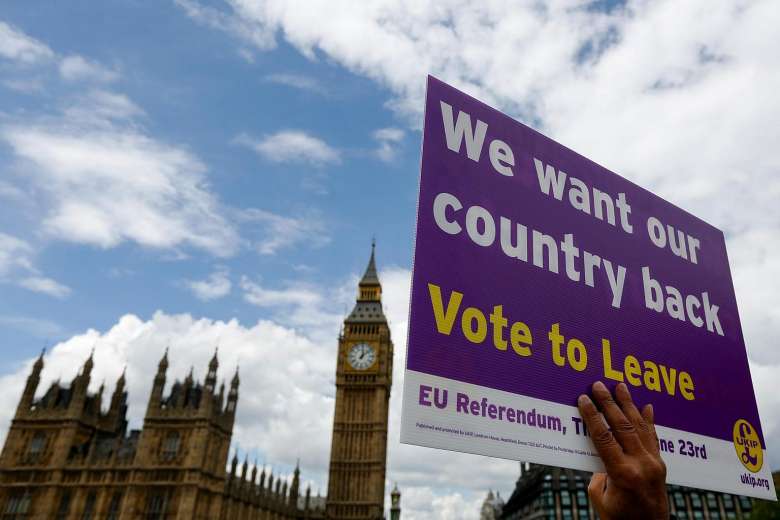
Reeling from the murder of MP Jo Cox, the EU referendum campaigns resumed Sunday, with just four days to go until the critical vote that will shape Britain's future.
The Remain and Leave camps suspended campaigning for three days after the killing of Cox on Thursday. A 52-year-old man has appeared in court charged with her murder.
But with the polls too close to call, leaders were to hit the television studios on Sunday to begin their final push for votes.
Prime Minister David Cameron, who wants Britain to stay in the European Union, said the country was facing an "an existential choice" from which there would be "no turning back".
Meanwhile Britain's Sunday newspapers picked sides in their final editions before the referendum.
The Mail on Sunday and The Observer gave their support to the Remain camp, while The Sunday Times and The Sunday Telegraph broadsheets backed quitting the EU.
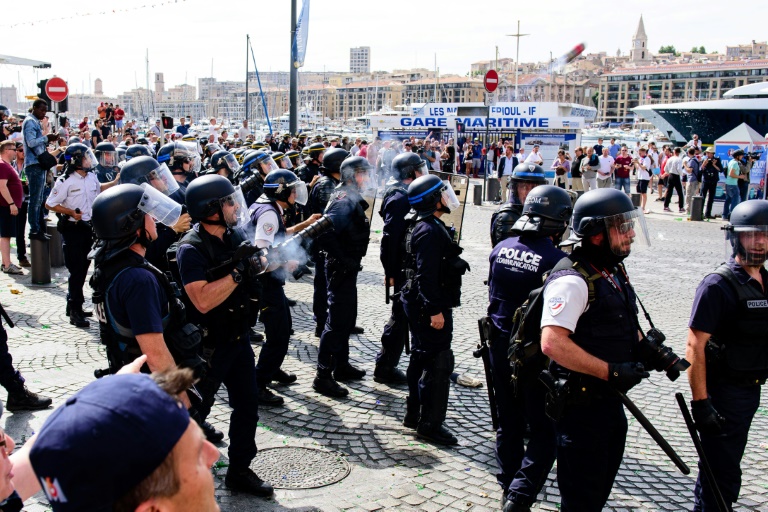
The head of Britain’s Euro 2016 policing operation on Sunday said Russian football fans attacked their English rivals wearing gum shields, martial arts gloves and carrying knives.
Assistant chief constable Mark Roberts told Britain’s Guardian daily the clashes in Marseille were the most serious he had seen in 10 years of investigating football violence.
Roberts admitted “a small minority” of England fans were out to cause trouble, but said there were hundreds of “Russian troublemakers”.
“Our spotters in Marseille saw them putting in gum shields and putting on martial arts gloves and bandanas before attacking England fans in the port,” Roberts was quoted as saying.
“We know some were carrying knives because one England fan was stabbed. They wore a kind of uniform — all in black T-shirts and clothing and most carried bum bags, possibly to conceal weapons,” he told the Guardian.


















